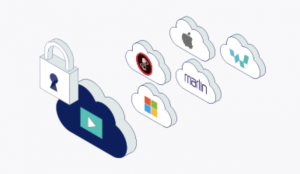InterTrust ExpressPlay supports SPEKE 2.0
Content security outfit Intertrust ExpressPlay has completed validation testing and now supports version 2.0 of the Secure Packager and Encoder Key Exchange (SPEKE) API in its ExpressPlay multi-DRM cloud service.
 Amazon Web Services (AWS) developed the SPEKE API in 2018 as an open API specification to democratize the way DRM systems integrate with encryptors, including encoders, transcoders, and origin servers.
Amazon Web Services (AWS) developed the SPEKE API in 2018 as an open API specification to democratize the way DRM systems integrate with encryptors, including encoders, transcoders, and origin servers.
SPEKE allows content owners and distributors to use any SPEKE-enabled key server with any SPEKE-enabled encryptor in cloud-based, on-premises, or hybrid infrastructure by standardizing the method of key exchange between the key server and encryptor.
SPEKE version 2.0 aligns with MPEG-DASH advocacy organisation the DASH Industry Forum’s Content Protection Information Exchange (CPIX) specification version 2.3, which it says expands interoperability to include support for multiple encryption keys to increase security by allowing encryption of separate audio and video tracks, or separate video tracks based on different resolution, framerate, or High Dynamic Range (HDR) characteristics.
In video and audio processing and delivery workflows, encryptors obtain encryption keys from DRM platforms, encrypt audio and/or video tracks, and prepare them for distribution to audio and video players on mobile devices, game consoles, smart TVs, and streaming devices.
SPEKE v2 is said to add forward compatibility with future versions of the CPIX specification, allowing content owners to benefit from upcoming CPIX innovations.
ExpressPlay DRM is a key component of the ExpressPlay Media Security Suite, which consists of a cloud-native multi-DRM service, direct-to-TV broadcast security, anti-piracy services, and an offline multi-DRM platform.
“After working with AWS for several years already, we are pleased about the AWS for Media & Entertainment initiative and support for SPEKE v2.0,” said Ali Hodjat, Vice President Marketing, Intertrust ExpressPlay.
“This support directly benefits customers who rely on ExpressPlay DRM to protect their premium OTT streaming services.”



